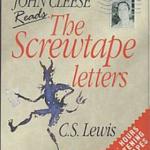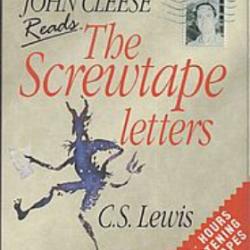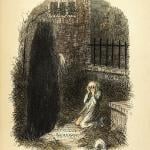We live in Orwellian times, so let’s read some Orwell. And since we just recently re-read a bit of Charles Dickens’ A Christmas Carol, let’s turn again — as we do here every six months or so it seems — to George Orwell’s splendid essay On Charles Dickens:
The thing that drove Dickens forward into a form of art for which he was not really suited, and at the same time caused us to remember him, was simply the fact that he was a moralist, the consciousness of “having something to say.”
He is always preaching a sermon, and that is the final secret of his inventiveness. For you can only create if you can care. Types like Squeers and Micawber could not have been produced by a hack writer looking for something to be funny about. A joke worth laughing at always has an idea behind it, and usually a subversive idea. Dickens is able to go on being funny because he is in revolt against authority, and authority is always there to be laughed at. There is always room for one more custard pie.
His radicalism is of the vaguest kind, and yet one always knows that it is there. That is the difference between being a moralist and a politician. He has no constructive suggestions, not even a clear grasp of the nature of the society he is attacking, only an emotional perception that something is wrong, all he can finally say is, “Behave decently,” which, as I suggested earlier, is not necessarily so shallow as it sounds. Most revolutionaries are potential Tories, because they imagine that everything can be put right by altering the shape of society; once that change is effected, as it sometimes is, they see no need for any other. Dickens has not this kind of mental coarseness. The vagueness of his discontent is the mark of its permanence. What he is out against is not this or that institution, but, as Chesterton put it, “an expression on the human face.” Roughly speaking, his morality is the Christian morality, but in spite of his Anglican upbringing he was essentially a Bible-Christian, as he took care to make plain when writing his will. In any case he cannot properly be described as a religious man. He “believed,” undoubtedly, but religion in the devotional sense does not seem to have entered much into his thoughts.
Where he is Christian is in his quasi-instinctive siding with the oppressed against the oppressors. As a matter of course he is on the side of the underdog, always and everywhere. To carry this to its logical conclusion one has got to change sides when the underdog becomes an upperdog, and in fact Dickens does tend to do so. He loathes the Catholic Church, for instance, but as soon as the Catholics are persecuted (Barnaby Rudge) he is on their side. He loathes the aristocratic class even more, but as soon as they are really overthrown (the revolutionary chapters in A Tale of Two Cities) his sympathies swing round. Whenever he departs from this emotional attitude he goes astray. A well-known example is at the ending of David Copperfield, in which everyone who reads it feels that something has gone wrong. What is wrong is that the closing chapters are pervaded, faintly but not noticeably, by the cult of success. It is the gospel according to Smiles, instead of the gospel according to Dickens.
Orwell was neither a comedian nor a Christian, but here he gets at core truths about both of those things that often elude many people who identify themselves as one or the other.
He’s writing in 1940, when Molly Ivins hadn’t even been born yet, so the language of “punching down” wasn’t yet available to him, but that’s essentially what he’s saying here. Dickens was both a brilliant comic writer and a moralist “preaching a sermon,” and he succeeded at both of these because he was “on the side of the underdog, always and everywhere.” Whenever his writing strayed from that allegiance — whenever he starts punching down instead of punching up — “it feels that something has gone wrong.” A custard pie in the face of a homeless beggar is neither funny nor moral.
The power of Orwell’s keen critique here is that he’s matter-of-factly evaluating Dickens’ Christian morality without any regard for its own internal, sectarian logic or standards. This isn’t the fiery prophetic denunciation of Isaiah, condemning hollow religion that forsakes justice for the oppressed as blasphemy and disobedience. It’s just a critic pointing at certain passages where Dickens strays from his “quasi-instinctive siding with the oppressed against the oppressors” and saying, yeah, no, that bit doesn’t work. It’s off. Nobody’s buying that bit.
This doesn’t have the apparent authority of “thus saith the Lord,” but it has the same final authority as an audience that doesn’t laugh at a comedian’s jokes. It does no good for a dying comic to point out that they’re the only professional in the room, and that their credentials and membership in the guild makes them qualified to judge whether or not something is funny in a way that none of those ignorant lay people in the audience can claim to be. Christians are free to dismiss Orwell’s perspective as that of a godless outsider, muttering that the “wisdom of God is foolishness to man,” but that comes off like a bombing comic claiming that the audience just didn’t appreciate the Andy Kaufman-esque genius of his brilliantly “meta” anti-comedy set.
I was reminded of Orwell’s words above when re-reading that passage the other day from A Christmas Carol.
The scene here involves the visions given to Ebenezer Scrooge by the Ghost of Christmas Future. Scrooge has witnessed several conversations of people responding to the news of his death with glibness, disdain, and boredom, so he begs the spirit to show him some scene of people responding to his death with real, heartfelt emotion.
And Scrooge gets what he asked for — good and hard. The spirit whisks him away to the home of a young family whose debts Scrooge owned and profited from. Here, as ever, Dickens sides with the underdogs, with “the oppressed against the oppressors.” The young husband tells his wife, Caroline, that Scrooge is dead and:
She was a mild and patient creature if her face spoke truth; but she was thankful in her soul to hear it, and she said so, with clasped hands. She prayed forgiveness the next moment, and was sorry; but the first was the emotion of her heart.
Joyous gratitude, and then contrition for that joy. This is a perfect example of Orwell’s description of Dickens’ taking “the side of the underdog, always and everywhere,” and thus, usually, changing sides “when the underdog becomes an upperdog.” The gratitude and joy are Caroline’s (and Dickens’) proper response to the downfall of her oppressor. The contrition is Caroline’s (and Dickens’) recognition that Scrooge is now powerless and that gleeful grave-dancing would be an unseemly punching down at a cruel man who is no longer capable of his former cruelty.
The Ghost allows Scrooge to see the rest of this scene, and the impact of it — the final sentence below — turns out to be the thing that drives Ebenezer Scrooge to repent and to change his ways:
“To whom will our debt be transferred?”
“I don’t know. But before that time we shall be ready with the money; and even though we were not, it would be a bad fortune indeed to find so merciless a creditor in his successor. We may sleep to-night with light hearts, Caroline!”
Yes. Soften it as they would, their hearts were lighter. The children’s faces, hushed and clustered round to hear what they so little understood, were brighter; and it was a happier house for this man’s death! The only emotion that the Ghost could show him, caused by the event, was one of pleasure.
“Soften it as they would” because punching down is bad and these are not bad people. But their kindness to the newly powerless oppressor does not alter the facts of the matter: the death of this merciless man stops him from doing further harm to their family and to all the other families oppressed by Scrooge. “Their hearts were lighter” and properly so. They were “happier” not because they took pleasure from Scrooge’s death, but because the end of his life meant the end of the pain he was actively causing them, and thus his death gave them, for the first time since he had entered their lives, the possibility of pleasure.
Again, in the context of this beloved story, their softened, reluctant, but honest happiness at the death of a wicked man is redemptive. It is this scene that breaks Ebenezer Scrooge and leads him to abandon his former miserliness for a life of generosity.
Scrooge’s repentance — his change of heart — means that almost everybody in A Christmas Carol winds up living happily ever after. Caroline and her family, Bob Cratchit and Tiny Tim and all the rest.
Which brings us back to my other favorite bit from Orwell’s essay:
It seems that in every attack Dickens makes upon society he is always pointing to a change of spirit rather than a change of structure. It is hopeless to try and pin him down to any definite remedy, still more to any political doctrine. His approach is always along the moral plane, and his attitude is sufficiently summed up in that remark about Strong’s school being as different from Creakle’s “as good is from evil.” Two things can be very much alike and yet abysmally different. Heaven and Hell are in the same place. Useless to change institutions without a “change of heart” — that, essentially, is what he is always saying.
If that were all, he might be no more than a cheer-up writer, a reactionary humbug. A “change of heart” is in fact the alibi of people who do not wish to endanger the status quo. But Dickens is not a humbug, except in minor matters, and the strongest single impression one carries away from his books is that of a hatred of tyranny.
I said earlier that Dickens is not in the accepted sense a revolutionary writer. But it is not at all certain that a merely moral criticism of society may not be just as “revolutionary” — and revolution, after all, means turning things upside down — as the politico-economic criticism which is fashionable at this moment. …
Two viewpoints are always tenable. The one, how can you improve human nature until you have changed the system? The other, what is the use of changing the system before you have improved human nature? They appeal to different individuals, and they probably show a tendency to alternate in point of time. The moralist and the revolutionary are constantly undermining one another. Marx exploded a hundred tons of dynamite beneath the moralist position, and we are still living in the echo of that tremendous crash. But already, somewhere or other, the sappers are at work and fresh dynamite is being tamped in place to blow Marx at the moon. Then Marx, or somebody like him, will come back with yet more dynamite, and so the process continues, to an end we cannot yet foresee. The central problem — how to prevent power from being abused — remains unsolved. Dickens, who had not the vision to see that private property is an obstructive nuisance, had the vision to see that. “If men would behave decently the world would be decent” is not such a platitude as it sounds.
God bless us, every one.











